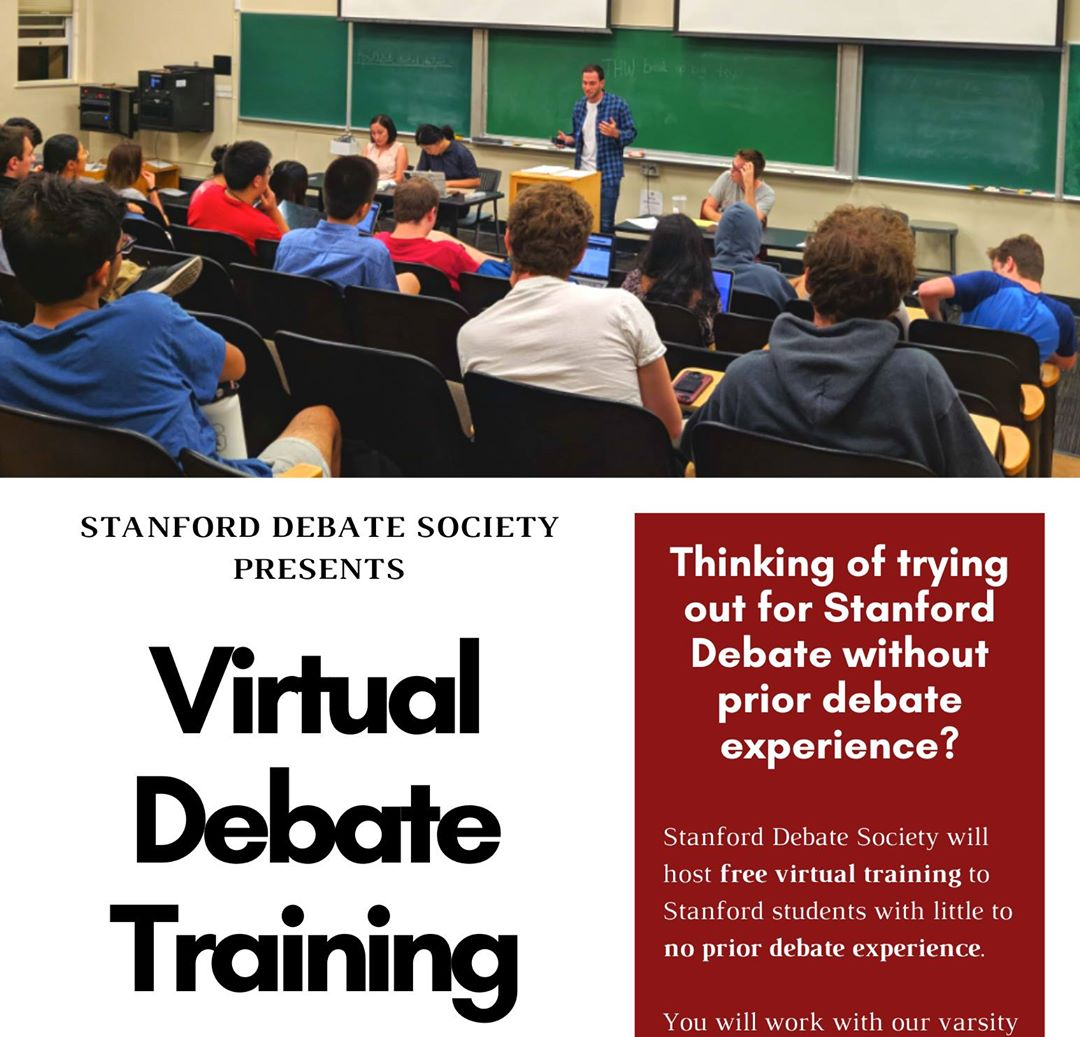The Stanford Debate Society (SDS) has made many changes to adapt to COVID-19: Zoom meetings have replaced the usual in-person practices, bedrooms have become the new backdrops of debate rounds and virtual competitions have rid students of the need for weekly red-eye flights to tournaments on the other side of the country.
But perhaps the biggest change for SDS this year is the introduction of a new free training course for students without competitive debate experience. Proposed by current SDS President Gaeun Kim ’22 in her presidential platform last spring, the program aims to teach and prepare potential SDS members before tryouts during the fall quarter.
SDS, a group of roughly 120 people, generally recruits 30 to 40 new members every year through its tryouts process. However, although approximately ten inexperienced debaters tend to make it on the team each year, Kim said that students from under-resourced high schools that are not able to offer debate training have struggled to do so.
“We really wanted to expand the pool of new students that we reach, in terms of diversity of debate experience and educational background,” Kim said.
The first session of the course began in August and teaches current Stanford students the basics of competitive debating. The team will also run a separate session for incoming frosh at the start of the school year. The course was partially inspired by the experiences that Kim and SDS Vice President of Membership Enshia Li ’22 had while tutoring students at the Hume Center for Writing and Speaking. They noticed that English as a second language (ESL) students and students with international backgrounds there said they believed they could not “fit into the debate scene,” Li said.
“A lot of [students] would say, ‘Oh, [SDS] sounds really cool, but it sounds really exclusive,’” Li added. “And the fact that we do have a selective trials process led people to think that debate is something that is really hard to get into.”
Kim also said she noticed the tryouts process, which requires an on-the-spot speech from a given topic, could be intimidating for those without formal training.
The new training course is led by SDS varsity debaters over the course of three weeks. The program encourages students to “play” with debate, according to Li.
“We want people to have an opportunity to explore, especially for freshmen at the beginning of their Stanford careers,” Li said.
In addition to the twice-weekly student-led sections, there are lectures dedicated to topics such as argument brainstorming. Each week focuses on a different topic, with “mock tryouts” at the end to better prepare those who wish to join SDS, according to Kim.
The event as a whole has also potentially become more accessible, according to SDS member Vivian Zhu ’23, given that in-person tournaments have been cancelled due to the pandemic. Tournaments have now shifted toward running over Zoom and Discord, saving members the discomfort and disruption of travel.
And with Stanford approaching a virtual fall quarter, Zhu said that the course is a “great window” into the sport of debate and can even lead to more “structured” everyday conversations through the analytical thinking skills it teaches.
Li, who joined in her frosh year without any prior experience, said she initially found competing to be challenging, finding it difficult to turn her ideas for arguments into words. However, after two years of constant practice, she said her ability to debate has improved significantly, and she now competes in a multitude of tournaments across the world, from Malaysia to the United Kingdom. Even so, a course like the one SDS is currently running would have “definitely” made things easier for her, she said.
“Sometimes the difficult aspects of starting debate is not knowing how you can practice in a constructive manner,” Li said. “The most important thing for me would’ve been having somebody tell me, ‘Hey, here are the things you can do to practice.’”
Li said the topics she’s debated in the British and American Parliamentary debate formats — the two formats in which SDS competes — focus on political and philosophical issues that Li said are important to understanding the world.
“I think, as a young person, it’s important to remain curious and never think that your opinions right now are set in stone,” Li said.
Contact Anthony Wong at anthonytjwong ‘at’ gmail.com
